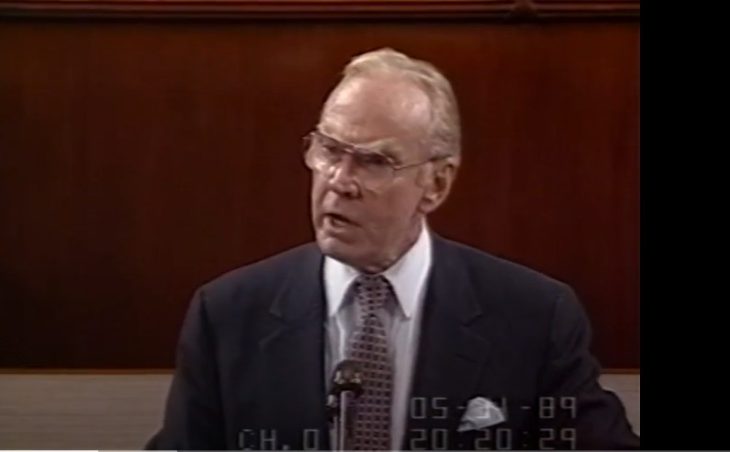
Word of the Day: Malfeasance
Today’s word of the day, thanks to the Words Coach, is malfeasance (https://www.wordscoach.com/dictionary). Malfeasance is a noun that refers to “wrongdoing or misconduct especially by a public official” (https://www.merriam-webster.com/dictionary/malfeasance) or “he performance of an act that is legally unjustified, harmful, or contrary to law, especially by a public official or a person in a position of public trust” (https://www.dictionary.com/browse/malfeasance). It is pronounced / mælˈfi zəns / (ibid.).
The word appears in English in the “1690s, from French malfaisance ‘wrongdoing,’ from malfaisant, from mal- ‘badly’ (see mal-) + faisant, present participle of faire ‘to do,’ from Latin facere ‘to do’ (from PIE root *dhe- ‘to set, put’).
“[S]pecifically, the doing of an act which is positively unlawful or wrongful, in contradistinction to misfeasance, or the doing of a lawful act in a wrongful manner. The term is often inappropriately used instead of misfeasance. [Century Dictionary]” (https://www.etymonline.com/search?q=malfeasance). The list of words that may have derived in part from that PIE root *dhe- is several dozen words long.
On this date in 1989, Speaker of the US House of Representatives James Claude Wright, Jr. (1922-2015; better known as Jim Wright) announced his resignation from the post of Speaker as soon as the House could choose a replacement for him (https://en.wikipedia.org/wiki/Jim_Wright).
After serving in the Army Air Force in World War 2, Wright went into business briefly before running for the Texas House of Representatives in 1946. He served one turn before being defeated in 1948. He then became the mayor of Weatherford, TX, a town of a little more than 8,000 residents, in 1950; he served in that role for one term. In 1954, Wright was elected to the US House of Representatives, representing a Congressional district that included Fort Worth and his hometown of Weatherford.
From this point on, Wright gradually rose in the Democratic Party’s leadership in the House. The Democrats controlled the House from 1955 to 1995, so being in the leadership meant that he had a fair amount of power. In 1971, he became a majority whip—that is someone who is responsible for whipping up votes for bills that the leadership wants to see passed. In 1976, when House Majority leader Tip O’Neill moved up to become the Speaker of the House, Wright narrowly won the position as majority leader.
The wiki says, “though Wright never chaired a House committee or a high-profile subcommittee, he used his outgoing personality to obtain commitments from friends and his two decades of seniority on the Public Works Committee to amass obligations from colleagues by helping secure funding for federal buildings, roads, highway interchanges, and water projects. These efforts left him well-positioned to campaign for a position in the House leadership when a vacancy occurred” (ibid.). In other words, he was able to secure support from his colleagues by buying them off with taxpayer money.
In 1986, O’Neill retired from the Speakership after 10 years, and Jim Wright easily won the speakership. “At the time, Wright stated that being speaker of the House ‘is the greatest responsibility that can come to a lawmaker anywhere in the world’” (ibid.).
So what happened? Why did he resign from the position of Speaker of the House after just two years. Part of it was that there was a House Ethics Committee report that said that Wright has used bulk purchases of his book Reflections of a Public Man to earn money in excess of what he would normally have been able to learn from speaker fees. Buying a politician’s book in bulk can provide income for that politician or income for their re-election fund. Wright was also accused of getting his wife a do-nothing job so that it wouldn’t look like an influence-peddling kind of gift. In addition, Wright was accused of being involved in the Savings and Loan crisis of the 1980s, a crisis which involved contributions from Charles Keating, who was at the center of the crisis, to Wright, contributions that saved Wright from financial ruin.
Wright claimed before his death that resigning as Speaker of the House was something he regretted, that resigning was a miscalculation at the time. I disagree. There was plenty of evidence against Wright’s having been guilty of malfeasance, and when a politician gets caught with their hand in the cookie jar, they ought to resign. Better yet, politicians should not engage in malfeasance. Better yet, people should not make a career out of politics; they should serve a few years and then do something else and let someone else have a chance to serve. Because politicians who serve for decades are usually serving themselves first.
Today’s image is from Jim Wright’s resignation speech, recorded by CSPAN (https://www.c-span.org/program/house-highlight/resignation-speech-of-speaker-wright/151101).